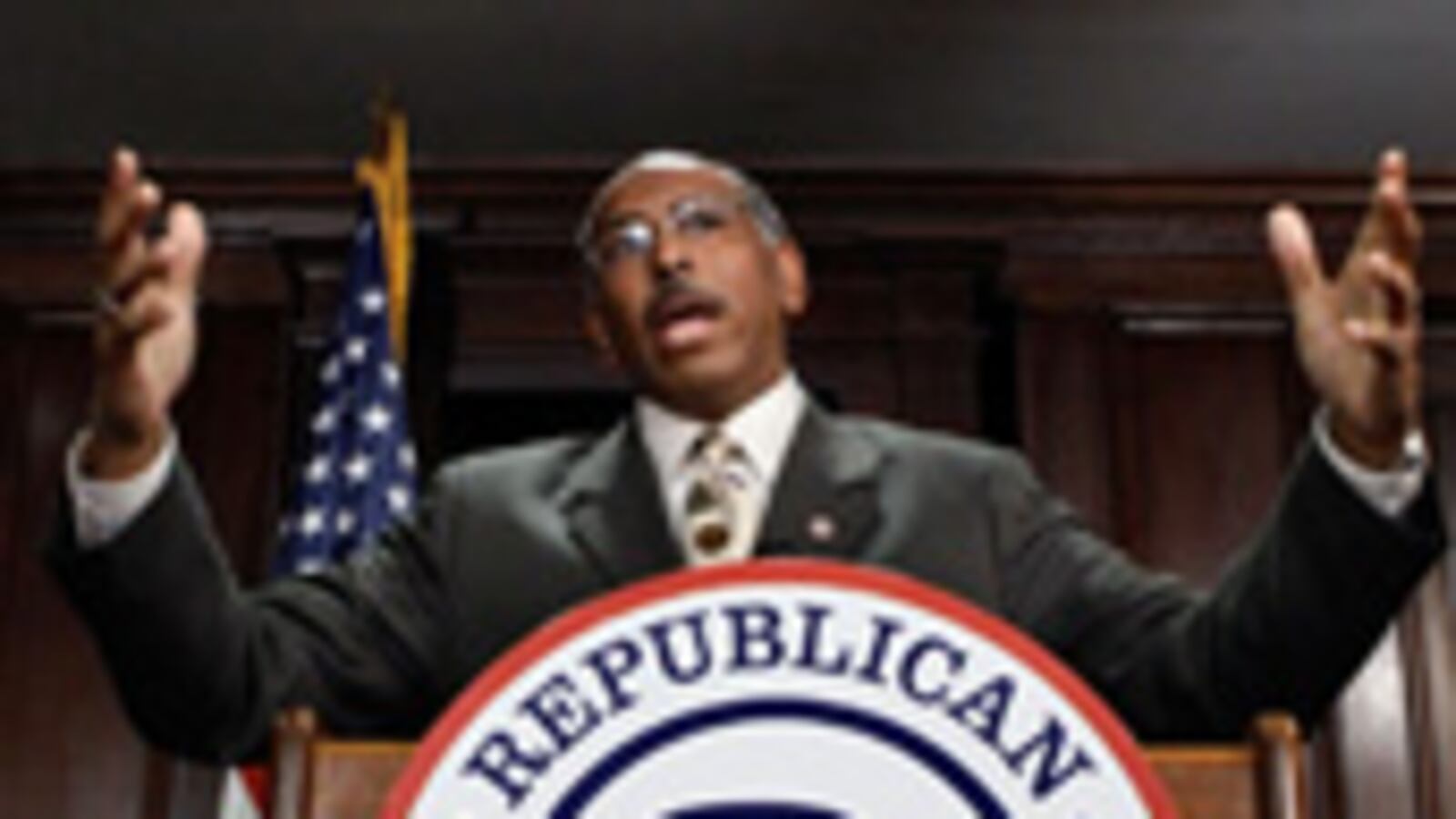
Republicans should be gleeful. After shepherding the largest expansion of the federal welfare state since Medicare through Congress, and achieving a goal that American liberals have been striving for ever since FDR called for a Second Bill of Rights in 1944, President Obama, the most gifted politician of his generation, garners an anemic approval rating of 48 percent in a new USA Today poll. While 47 percent of voters believe that the new health care law is a "good thing," 50 percent believe that it's a bad thing. And that's after saturation coverage of a major Democratic triumph, through which sharp criticisms of the legislation barely broke through. The shock and awe campaign led Republican senators like John Cornyn and Bob Corker and Richard Burr to suggest that the law couldn't be repealed, and that tinkering at the edges was the most the right could realistically achieve. Now, however, we see tentative signs that skepticism remains, and that the law might prove very vulnerable indeed, not least because of the time it will take to implement both its most generous and its most onerous provisions.
In the wake of the latest RNC antics, it's worth asking whether party headquarters is doing any good at all.
Yet Republicans are reeling from an unending stream of scandals and embarrassments from the Republican National Committee, where a sophomoric PowerPoint that maligned the intelligence of rank-and-file donors was followed by an event for young donors at decidedly family-unfriendly Los Angeles nightclub was, most pathetically, followed by an imbecilic typo in a direct mail appeal that swapped the number of a phone sex line for that of RNC headquarters. This is the kind of shameful stupidity, in another time and place, would inspire the leadership of the RNC to commit ritual suicide. But instead there's been a series of increasingly pathetic apologies. Consider the hard-working small business owner who backs Republicans as the party more likely to keep taxes low and respect the traditional values she holds dear. Is the RNC filling her with confidence regarding the competence and moral uprightness of the GOP, or is it reinforcing the disgust that she and a growing number of other Americans feel for politicians of any party?
Granted, there's something more than a little convenient about the focus on the RNC. As journalist Tim Mak has reported at FrumForum, the Democratic National Committee has a staggering entertainment budget that contains more than a few embarrassing line items. But because Democrats don't have a reputation as the party of bluenoses, this doesn't make for much of a story. Besides, if Republicans present themselves as morally scrupulous penny-pinchers, saying that the other guys are just as bad obviously doesn't fly. Right now, the party is capitalizing on a deep disgust with the free-spending ways of Washington, D.C., and the pervasive perception that elected officials aren't leveling with the American public about the difficult economic choices we face. Lame excuses for goonish behavior cut against that message, to put it mildly.
Though the Republican National Committee plays an important role in framing the party's message, particularly in presidential years, it is ultimately a very weak organization, reflecting the institutional weakness of both of America's major political parties. The weakening of the parties began in the 1960s as Democratic reformers sought more open and competitive primaries, and it accelerated during the post-Watergate wave of campaign finance regulations. Far from tight-knit organizations, the Republican and Democratic parties are loose federations that have almost no ability to discipline candidates who raise most of their own campaign funds and, as a general rule, build their own constituencies. It's true that Republicans tend to be somewhat more ideologically united than their Democratic counterparts, but it's not because the RNC imposes anything like discipline from above.
And so, in the wake of the latest RNC antics, it's worth asking whether party headquarters is doing any good at all. Tony Perkins of the Family Research Council, a group known for its influence on the evangelical right, has drawn considerable attention for recommending that social conservatives donate to individual conservative candidates rather than to the RNC. For Perkins, the nightclub imbroglio was yet another indication that the RNC was “completely tone-deaf to the values and concerns of a large number of people from whom they seek financial support.”
One thing we've already seen is the development of shadow party structures, like Sen. Jim DeMint's Senate Conservatives Fund, that allow ideologically committed donors to do an end-run around the RNC. It's very easy to imagine this trend accelerating as more organizational talent and resources flow to other shadow parties, like American Crossroads, a new 527 group backed by former RNC chairman Ed Gillespie and Karl Rove. As National Journal's Under the Influence blog notes, the idea for the group was hatched well before the RNC's recent woes. But it's clear that it will profit from the RNC's decline. With a slew of Republican heavy-hitters, including a former executive director of the National Republican Senatorial Committee in the role of chief executive, it's easy to imagine American Crossroads having more gravitas than the RNC itself. American Crossroads is only one of a constellation of similar groups that will play an outsized role in the midterm elections.
It doesn't hurt that the energy on the right is coming from the Tea Party movement, which, as The Winston Group finds in a new survey, doesn't always line up with traditional Republican priorities. Indeed, while 57 percent of self-identified Tea Partiers call themselves Republicans, 28 percent are independents and a surprisingly large 13 percent are Democrats. They're overwhelmingly older and middle class, and the issues that drives them to distraction is the deficit, not unlike the Perot voters who transformed the political landscape in the 1990s. Building structures that maintain distance from the Republican brand might resonate with voters bitterly opposed to politics as usual.
Last year, in light of the dizzying rise of third-party conservative candidate Doug Hoffman in New York's 23rd congressional district, Patrick Ruffini, the leading young Republican strategist, offered a quirky thought experiment: what if conservative candidates across the country abandoned the Republican label and ran as independents? Ruffini's post had a cynical edge. But it shows how the failures of the Republican National Committee could prove a tremendous boon to the right. There are many voters who distrust Republicans as much as they distrust Democrats and are yearning for honesty and solutions-oriented politics, not promises of unsustainable entitlement expansions or unfunded tax cuts. A coordinated wave of truth-telling fiscal conservatives, as opposed to the accounting gimmicks of the Bush era as to those of the Obama era, could capture the energy and enthusiasm of the Tea Partiers while resonating with more moderate voters looking for candidates with guts and integrity.
Reihan Salam is a policy advisor at e21 and a fellow at the New America Foundation.





